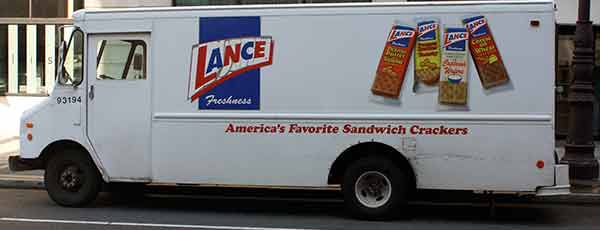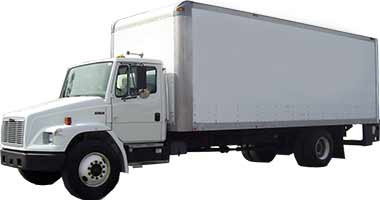Settling the debate on FedEx routes VS bread routes
People often ask me whether a FedEx route or a bread route is better. The answer is, it depends on your goals.
But no one likes the answer, “It depends.”
Because you still don’t know what it ‘depends’ on. Both are great business opportunities, but here’s a side by side comparison of most everything you’ll initially need to consider. For each issue compared, I gave blue lettering for the winner, red lettering for the loser, and black for a tie.
Don’t be tricked into thinking that because one or the other has more blue, that means it’s better. You need to weigh ALL of the pros and cons to make a decision. If at the end of this, you’re still not sure or really want to dig in deep with your particular situation, we can do that together. You know where to find me to get the help you need.
We’ll start with comparing all the attributes for bread routes and then compare those same attributes to FedEx routes.
So here’s a head-to-head comparison of bread vs a FedEx route:

Bread – Basics
Company Meetings:
Very infrequent. Every few months.
Absentee ownership difficulty:
Moderate, but can vary depending on route.
Financing:
Very common.
Bread – Taxes
CPA Expenses:
Low. Very simple business.
Employee Taxes:
Sub contracting allowed. Many “employees” are 1099.
Workers Comp Insurance:
Usually not required.
Bread – Trucks
Truck logos:
Usually not required.
Truck age policy:
No requirements.
Insurance on truck and contents:
Full insurance required.
Truck approval:
N/A. Use any personal truck / trailer.
Fear of rising gas prices:
Moderate. No fuel compensation plan, but usually low miles routes.
Truck Maintenance:
Moderate. You need to bring your truck to the shop or find a mobile mechanic to come to you.
Truck parking at night:
Easy. Parked at terminal or at your home.
Truck breakdowns:
Low (nicer roads, no homes, no bad driveways).
Effects of bad weather:
Very undesirable, but not a potential disaster like FedEx.
Bread – Income
Verification of paychecks:
Many bread routes print their paychecks on thermal paper and do direct deposit. Can be hard to verify all checks, but usually not necessary.
Fluctuation in weekly income:
Low. Monthly variations. Higher the first week of the month due to gov’t social programs.
Fringe benefits:
Expiring product is “free.” Nice for snack routes!
Route growth:
Varies. Most bread routes are stable but population growth will affect them.
Supplemental routes:
N/A. If the route grows, you’re paid in the same fashion.
Income scalability:
Usually not scalable to a large degree.
Bonuses:
Usually none.
Bread – Employees
Average employee wage:$500-$800 a week (usually no employment taxes)
Employee approval process:N/A. If they can step onto your truck, they’re approved.
Ease of employee swapping:
Moderate. Drivers know concepts of order management. Routes are very similar.
New hire learning curve:
2-4 weeks. Understanding concepts of order management is more important than memory.
Employees getting hurt:
Low. Same common areas that is highly trafficked. (no dogs, etc.)
Unsupervised employee:
Moderate. May need to check stores from time to time to make sure they’re being well serviced.
Using an employee:Discouraged with some companies. Many companies allow them though now.
Flexible hours:
Flexible.
Hours worked:Extremely early. 4am-3pm.
Intensity of labor:
Varies on route. Both the type of route (snack vs bread) as well as volume of route are a factor.
Uniforms:
Casual mostly. Some companies prefer you wear a company shirt.
New employee requirements:
Not applicable for bread routes. You can hire anyone you wish within reason and have them work immediately.

FedEx – Basics
Company Meetings:
Usually monthly.
Absentee ownership difficulty:
Easy when managed properly over a longer period.
Financing:
Possible, but rare.
FedEx – Taxes
CPA Expenses:
Moderate. Simple business.
Employee Taxes:
Required to be W2 and to pay employment taxes.
Workers Comp Insurance:
Required.
FedEx – Trucks
Truck logos:
Required.
Truck age policy:
Newer models required in some terminals.
Insurance on truck and contents:
Full insurance required.
Truck approval:
Must be certain make/model to be approved.
Fear of rising gas prices:
Very low due to FedEx fuel compensation plan. No benefit to lower prices though.
Truck Maintenance:
Easy. Usually mechanic on-site that performs work overnight at the terminal.
Truck parking at night:
Easy. Parked at secured terminal or at your home.
Truck breakdowns:
Moderate (harsher driving conditions for driveways).
Effects of bad weather:
Can be severe. Excellent (usually on-site) management required.
FedEx – Income
Verification of paychecks:Very easy. All paychecks stored online from date of ownership. Paychecks carry varying amounts of info due to ISP.
Fluctuation in weekly income:
Very low. Annual variations for holidays. Potential for variation in states like Florida.
Fringe benefits:Usually none.
Route growth:
Very high. 5-10%. Can sometimes burn out employees.
Supplemental routes:
Can make or lose money. Route growth can cause growing pains.
Income scalability:
Easy.
Bonuses:
Many, but can be taken away for many reasons.
FedEx – Employees
Average employee wage:
$600-$800 a week (usually employment taxes)
Employee approval process:
3-6 weeks from time you find someone to being in driver seat.
Ease of employee swapping:
Difficult. Each route is very different and has tremendous memory requirements.
New hire learning curve:
3-6 weeks. Excellent memory required. Usually just takes time to memorize streets.
Employees getting hurt:
Moderate. Danger of unmaintained homes, dogs, unmaintained docks, etc.
Unsupervised employee:
Easy. Low supervision needed for drivers on routes. The scanner keeps tabs for us.
Using an employee:
Encouraged by management. Owners should not be routinely having to ride on routes.
Flexible hours:
Not flexible.
Hours worked:
Normal daylight hours. 7am-8pm.
Intensity of labor:
Can be very fast paced. Packages up to 150 lbs allowed. FedEx Ground can often be more intense.
Uniforms:
Required for being on a route. Must often be purchased and a variety of sizes kept on hand.
New employee requirements:
Exceedingly rigorous. Background check, drug test, road test, uniforms ordered, recent professional driving history.

